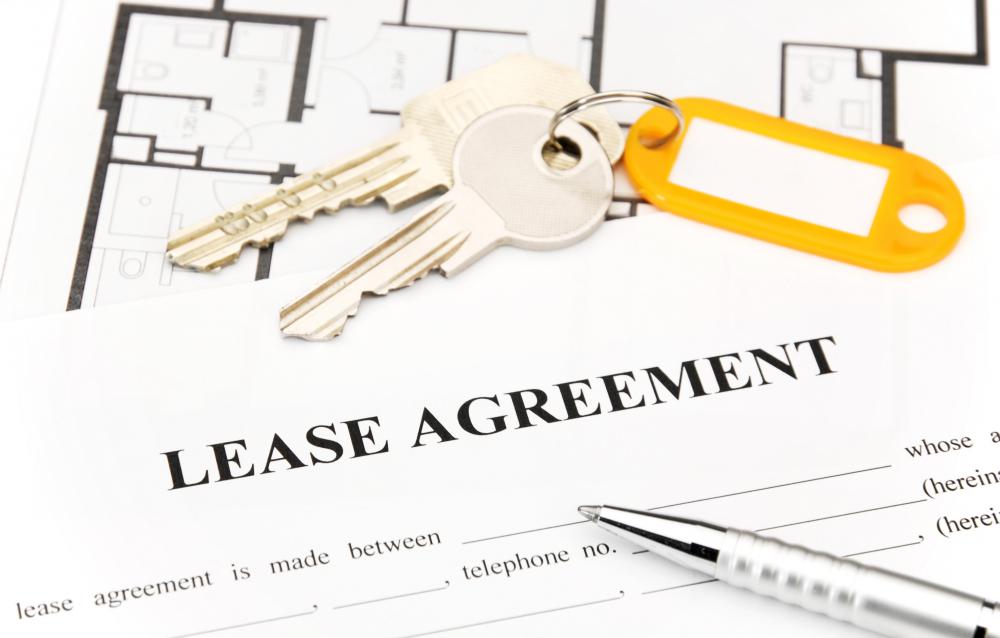At WiseGEEK, we're committed to delivering accurate, trustworthy information. Our expert-authored content is rigorously fact-checked and sourced from credible authorities. Discover how we uphold the highest standards in providing you with reliable knowledge.
What is a Closed-End Lease?
Also known as a walkaway lease or net lease, a closed-end lease is a type of rental contract that does not commit the lessee to buying the property at the time the contract expires. This type of agreement makes it possible for the lessee to evaluate the current value of the property at the time the lease expires, and determine if the property has appreciated or depreciated during the course of the contract. If the property value has depreciated, the lessee can simply end the relationship and find new living accommodations. In situations where the property has appreciated, the lessee may choose to exercise provisions within the lease agreement that make it possible to complete the purchase of the property.
While there are variations in how a closed-end lease is written, a basic model calls for calculating the anticipated worth of the property at the end of the lease agreement. For example, if the property in question is a vehicle, the appraisal of the projected worth at the end of the lease may be half of the original purchase price. This appraisal figure is used to calculate the amount of the monthly payments so that at the end of the lease, the lessee can pay the owner the projected value and thus own the vehicle outright.

It is here that the closed-end lease provides an important option for the lessee. If the vehicle has depreciated beyond expectations, then the lessee can choose to not exercise his or her option to buy it at the end of the lease. Instead, the owner retains full title. If the lessee chooses to purchase the vehicle in spite of the additional depreciation, he or she will pay the owner the worth that was projected and used to structure the lease agreement, effectively paying more for the vehicle than it is actually worth. For the most part, the lessee is much more likely to simply return the vehicle to the owner and look for other transportation.
There are instances when the same model holds for other types of property, including real estate. Here, the lessee can actually utilize a closed-end lease situation to secure property that appreciates beyond the value anticipated at the time the lease is put into effect. Depending on how the provisions of the lease are worded, the lessee may have the option to purchase the property at the figure projected at the beginning of the lease. This means that if the property appreciated roughly twenty percent more than previously projected, the lessee can exercise the option and buy the property at the lower projection, instead of current market value.
Since the closed-end lease model is subject to local regulations, it is important to know which terms and provisions are governed by local law. In some areas, the lessee may not have the option to purchase at the lower projected value if the property has appreciated beyond previous expectations. As with any type of legal contract, it is important to understand how each provision in the contract would apply in different scenarios, before ever making a commitment.
AS FEATURED ON:
AS FEATURED ON:











Discuss this Article
Post your comments